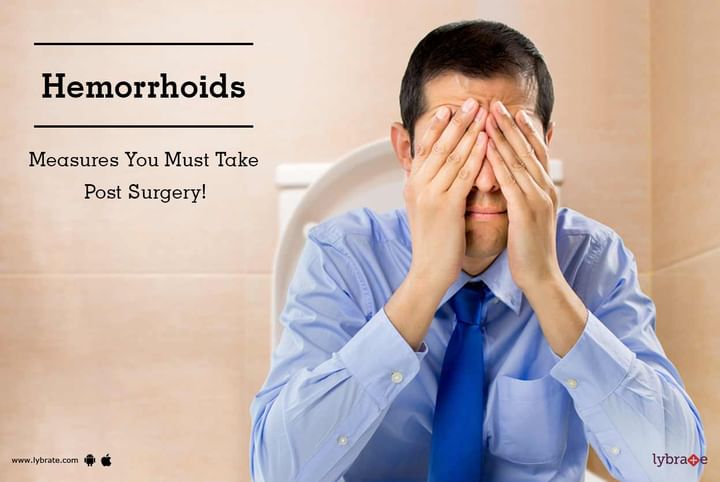Hemorrhoids - Measures You Must Take Post Surgery!
Have you ever faced difficulty or experienced severe pain while defecation? Well, this is a widespread phenomenon amongst many, but most of them feel shy to discuss this problem. Different People differently understand the term Piles. For some, it is the name given to the uneasiness or pain that one feels during defecation and for others, it might be blood found along with feces. This notion is partially correct. Piles, also known as Hemorrhoids, are vascular structures that are present in the anal canal.
These vascular structures are like cushions that help with stool control. The problem arises when these structures become swollen. Post inflammation of hemorrhoids leads to the ultimate problem. Piles become painful which is unbearable for many while a few people don’t feel much pain but bleeding characterizes the disease. Around 10% of patients having Piles problem require surgical treatment, but they are unaware of the measures needed before opting for hemorrhoid surgery.
Hemorrhoidectomy
The operation that is used to remove hemorrhoids is known as Hemorrhoidectomy. In this surgery, a local or general anesthesia is given to the patient so that the affected area gets numb and the patient doesn’t feel much pain. The General Surgeon make perform a procedure around the anus to get rid of the hemorrhoids. As the anus area is susceptible, stitches might be required. Patients can go home the same day, but intensive care is needed. It might take around two weeks to get normal, in some cases, it may also extend to 6 weeks.
Cure Piles in 15 Minutes (BIEM)-
‘Biological Impendence Electrical auto-Measurement’ (BIEM) concept is a smart and advanced technology that able to produce controlled ‘tissues fusion’ without causing any carbonation. This technology is being aggressively developed and incorporated into a variety of modern surgery.
The major advantages of this technology is no bleeding, no open wound, no risk of infection and less pain as the nerve fibers are sealed in the tissues fusion. The new tissues growth will take place from inside and the dry and hard zone will take off itself when tissues healed up.
Measures to be taken post hemorrhoid surgery
The surgery is extremely safe, however, like all surgeries, there are certain precautions that need to be taken in order to avoid post-op infection or reaction to anesthesia. People mostly complain about the severe pain that they feel while defecating and might also be accompanied by irritation or itchiness in the treated area. These symptoms are normal, but if the irritation or itchiness becomes severe or excessive bleeding becomes frequent, then consult your doctor immediately.
Fever or difficulty while defecating should also be reported to the doctor if it continues to be a problem after surgery. For the recovery phase, your doctor might prescribe the use of some pain killers along with the usage of some stool softeners. Taking a warm bath might also lower the pain.
Usually, the doctors prescribe a healthy diet before and after hemorrhoidectomy surgery. But the measures might differ from case to case. A few common after and before care measures include diet changes, lifestyle changes, and adopting a regular exercise program. These three steps will not only help in speedy recovery but also reduce the chances of hemorrhoids recurring. If you wish to discuss any specific problem, you can consult a General Surgeon.



+1.svg)
